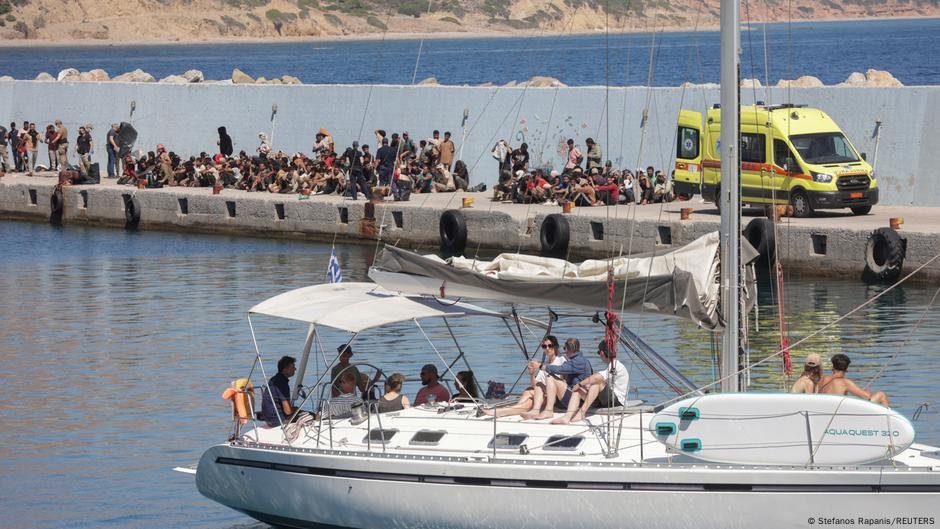The Greek government’s recent move to temporarily halt asylum application processing in Crete appears to be having an immediate impact, with migrant arrival numbers dropping sharply. Officials say the policy is part of a broader effort to control irregular migration, and they are considering extending it beyond the initial three-month period.
Since the suspension began on July 9, arrivals to Crete have fallen to under 900, a significant decrease compared to previous months. Greek Migration Minister Thanos Plevris explained that the “clear message” that asylum will not be granted during this period — combined with the detention of migrants arriving illegally — has likely discouraged new arrivals. The government has hinted that the measures could remain in place if necessary.
Despite a surge in arrivals earlier this summer from Libya to Crete and the nearby island of Gavdos, overall sea arrivals to Greece have dropped by 5.5% in the first half of 2025, according to UN data. Authorities noted that the Libya-to-Crete route is unusual and particularly risky; however, increased Greek coast guard patrols in the Aegean have prompted more smugglers to shift from the Turkish route to North Africa.
More than 7,000 migrants have landed in Crete and Gavdos so far this year — a 40% jump compared to 2024. In response, Greece deployed two frigates to patrol near Libya’s coast and began training Libyan coast guard officers in Crete. These steps are intended to strengthen cooperation and reduce the flow of migrants along this route.
A major trigger for the suspension was the arrival of 2,642 migrants in the first week of July alone, which Plevris described on Greek public broadcaster ERT as an “invasion.” He stressed the need for a firm stance, saying, “Countries have borders, and Europe has reached its limits. It will not accept more illegal migrants.” Plans are underway to introduce new laws by early September, allowing detention for up to two years for those entering illegally and up to five years in prison for staying without legal papers. However, people fleeing armed conflict would still be eligible for asylum.
This raises a key question: Will this asylum ban in Crete reduce migration in the long term? Experts say it could temporarily discourage arrivals, but human rights groups warn it may violate international law and harm Greece’s reputation. The United Nations refugee agency (UNHCR) has expressed “serious concern” over the policy, while activists point out that Prime Minister Kyriakos Mitsotakis — whose family is from Crete — has not imposed similar measures on other Greek islands since taking office in 2019.
The move has also sparked concern among Crete’s tourism industry, which fears that reports of increased migrant arrivals could discourage visitors during the peak holiday season. Local businesses worry that negative perceptions could affect one of the island’s most important sources of income.
Rights organizations have previously accused Greece of conducting illegal pushbacks of migrants at sea and along land borders. Some activists view the asylum freeze in Crete as an extension of this alleged practice. Greece denies these claims, insisting it operates within international law to protect its borders. Meanwhile, the European Union is reviewing 12 reported cases of potential pushbacks involving Greece.
While the drop in arrival numbers may be seen as a short-term success for the government, the wider debate over human rights, border control, and the balance between national security and humanitarian obligations is far from over.

